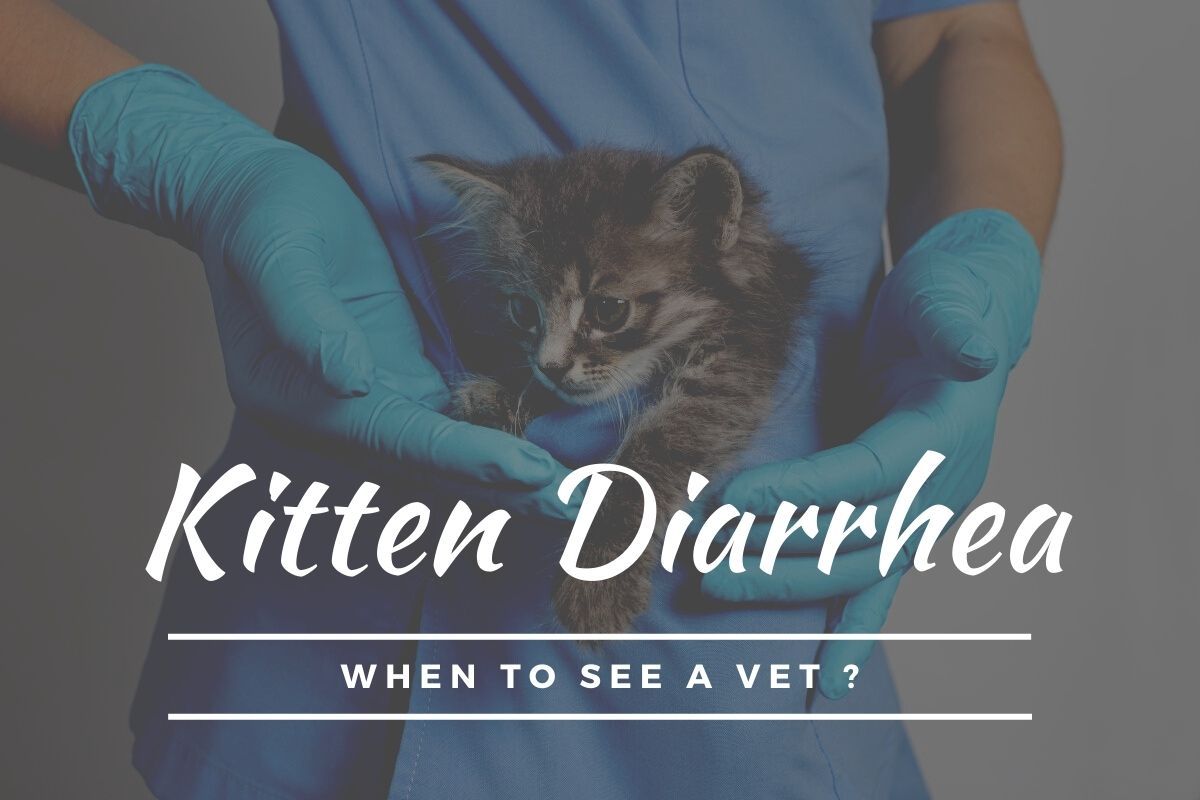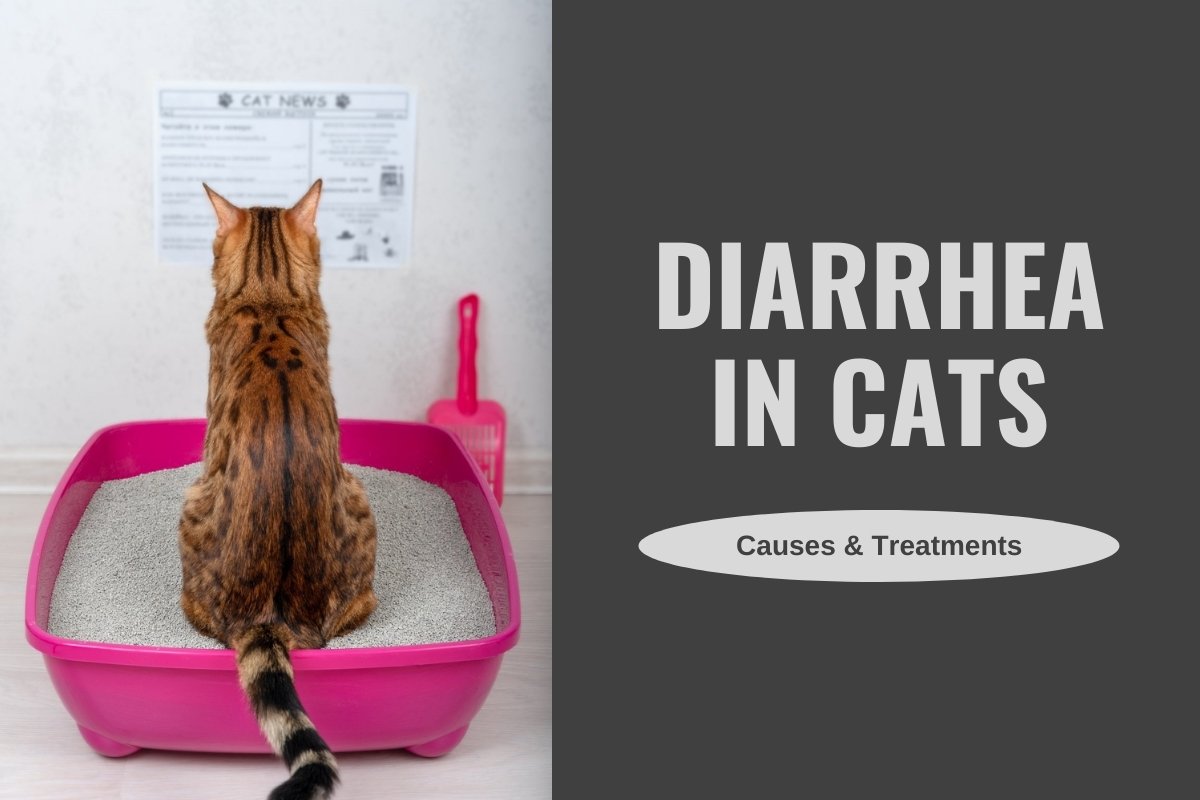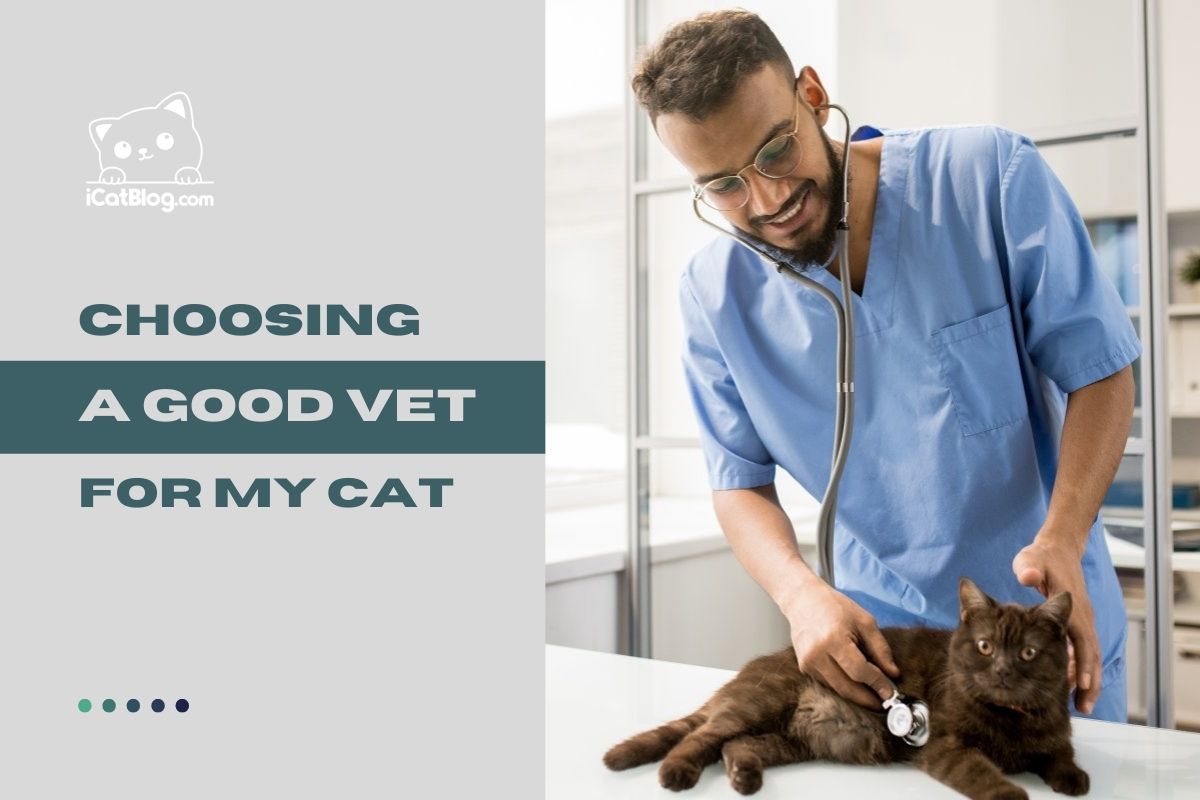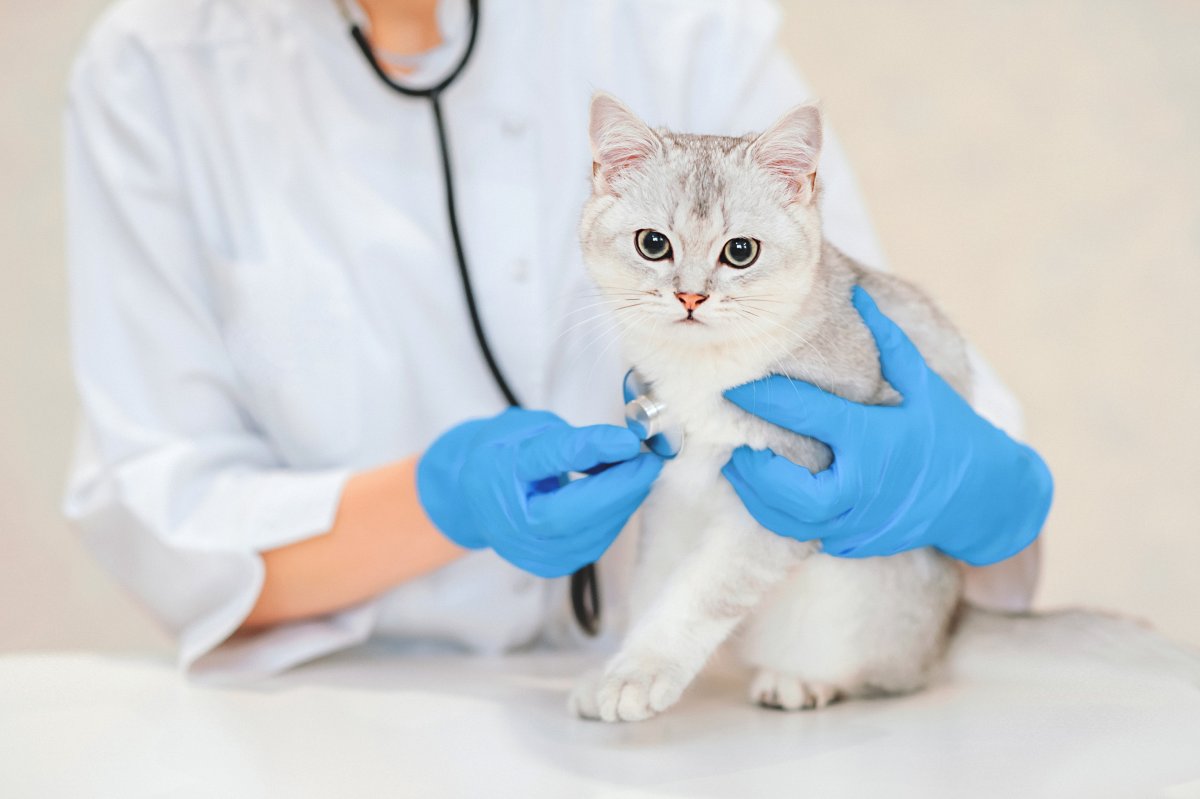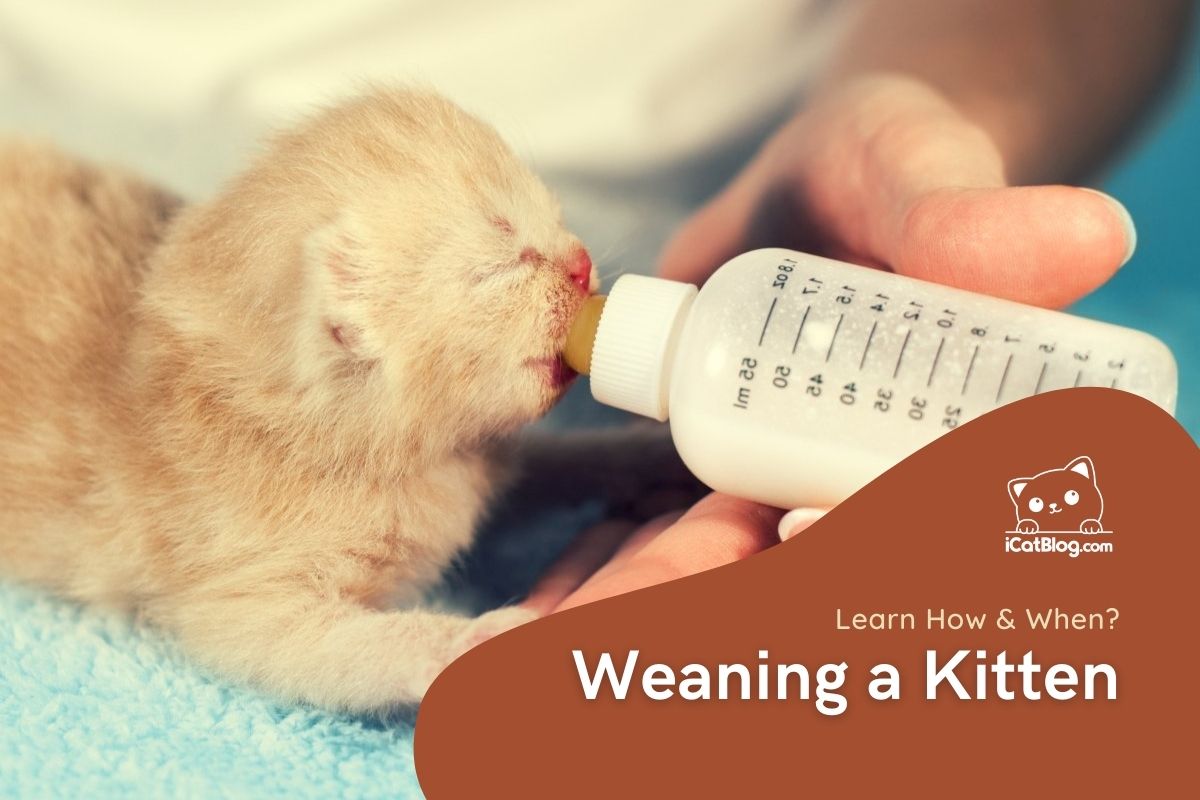Is your kitten suffering from diarrhea? Every cat owner understands how unpleasant and nasty diarrhea can be. Even though a rare case of diarrhea may seem slight, it might indicate a severe condition in kittens. Continue reading to learn what triggers kitten diarrhea and when to take your kitten to the hospital.
What Is Diarrhea In Kittens?
Diarrhea in kittens is the discharge of runny feces, and it is not an illness but rather a symptom of a more significant problem. It could be the only sign, or it may be accompanied by additional symptoms such as fatigue, vomiting, and poor appetite.
Diarrhea can be both acute and persistent. Acute diarrhea is the abrupt start of repeated loose feces. In contrast, persistent diarrhea is defined as diarrhea that has lasted more than 3 weeks. Diarrhea is among the most prevalent conditions addressed by veterinarians in kittens.
Kittens’ digestive systems aren’t entirely formed, making them more vulnerable to food modifications. Since their physical health isn’t sufficiently matured, they’re also more susceptible to viruses or parasites that can lead to diarrhea in kittens.
Signs of Diarrhea
The symptoms of diarrhea can vary greatly depending on the kitten’s age. The traditional indicators of diarrhea in your cat are frequent watery feces. A kitten with an episode of explosive, watery poo and then struggling to poop can also indicate diarrhea. Other indicators include:
- Lethargy
- Fever
- Fatigue
- Discomfort
- Appetite loss
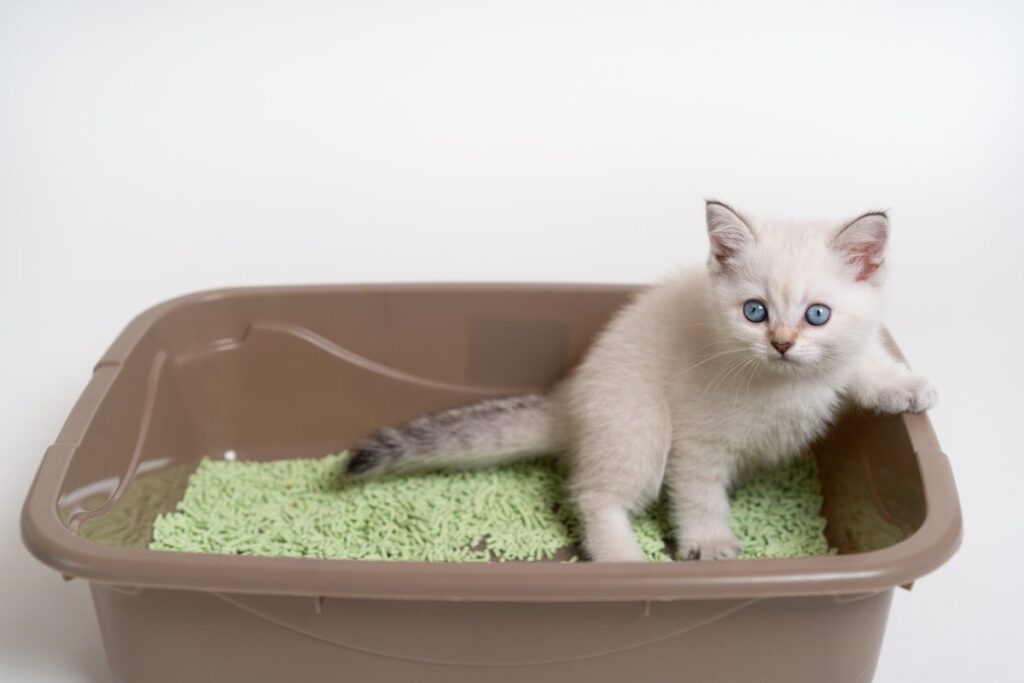
Check the waste box to see if your kitten is suffering from diarrhea. If you let your kitty roam outdoors, detecting diarrhea becomes more complicated since you would not be able to see their poop’s texture. If you see your kitten’s runny stool, take a sample immediately to your veterinarian for testing.
Causes of Diarrhea in Kittens
When your kitten has diarrhea, it is mainly triggered by one of the following conditions.
Dietary Modification
If you feed your cat a different type of food than they regularly eat, the following change in meals may disturb their bowels. As a response, any changes to diet diversity must gradually be performed. Gradually include a spoonful of the new food into the old, and substitute it entirely with the new meal after your kitten gets used to it.
Feeding Issues
Allergies or sensitivities to food, overfeeding, or the intake of indigestible foods can all be factors of diarrhea in kittens. If you believe it’s due to an allergy or that they’ve ingested something they shouldn’t have, seek Veterinary care as soon as possible.
Parasites
The most prevalent cause of diarrhea in kittens is parasites. When a kitten has diarrhea, it should be dewormed. Parasites and deworming are essential in rescuing kittens to guarantee they are parasite-free.
Non-edible Objects
Many cats like gnawing on non-food items; however, they can aggravate the intestinal tract and cause a hazardous blockage if such things are eaten. As an obstruction stops solid feces from passing through the bowels, fluid may leak around it and induce diarrhea.
Environmental Stress
Diarrhea in kittens can be caused by external changes, such as a relocation, a new pet, or a family member. Allow them abundant time to relax and provide calm spots away from the noise and activity of the home.
Home Treatments for Diarrhea in Kittens
Suppose your doctor feels that your cat’s diarrhea isn’t caused by specific food sensitivity. They may recommend home remedies, especially if you cannot arrange a visit or attend the hospital that day.
Provide Bland Food
Offer your bland kitten food in modest amounts. After a healthy stool has been produced, continue the bland diet for at least 2 days. It’s best to buy one of these designed diets to ensure your kitten gets enough essential nutrients. If your kitten experiences diarrhea for a longer time, properly cooked meals become crucial.
Probiotics
Probiotics have been shown to shorten the recovery time from diarrhea. Some researches have also supported using particular combinations of probiotics for kitten diarrhea. If probiotics are not available straight away, you can substitute them with organic yogurt, and for kittens, a teaspoon would be sufficient.
Electrolytes Treatment
Although electrolyte treatments are difficult to prepare at home, they aren’t necessary for minor episodes of diarrhea. Adding a minimal amount of salt-free meat broth to your kitten’s water may stimulate them to drink.
If more severe symptoms appear or diarrhea lasts longer than two days, seek veterinarian assistance immediately.
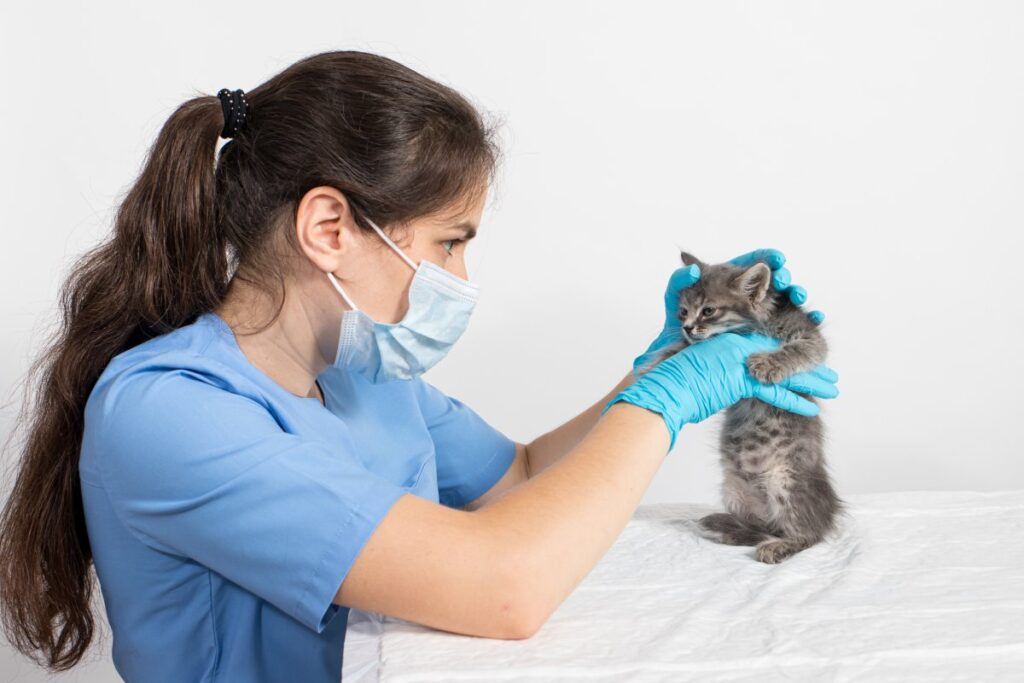
When Should You Take Your Kitten To The Vet?
Many diarrheal kittens will eventually need specialized care. A veterinary checkup is crucial if your kitten is not fully updated on preventive treatment, such as immunizations and deworming.
Kittens are also prone to various diarrheal infections that vaccines can avoid. Therefore proper vaccination is a necessary remedy to avoid kitten diarrhea.
Consult your veterinarian if you are unaware whether your kitten requires medical care. Your veterinarian will start by giving your kitten a comprehensive physical checkup. Following that, your veterinarian will most likely prescribe fecal parasite testing. If parasites are discovered during the fecal investigation, your veterinarian will recommend medicine to treat them. If your kitten is critically dehydrated, your veterinarian may hospitalize them for intravenous fluid therapy.
Diarrhea Treatment for Kittens
The source of diarrhea will determine treatment. Here are a few of the treatments:
- The veterinarian would prescribe deworming medicines to kill parasites
- The vet would prescribe temporary supplementation with probiotics and a prescription diet for digestive disorders.
- You might be asked to replace the dry food and see if food intolerances cause diarrhea.
Furthermore, treatment should be initiated to prevent water loss by providing adequate fluids, gastric stabilizers, syrups, and nutritional therapy. Even if diarrhea stops, it is best to stick to a light diet or the recommended diet for at least two days.
If you have any problems or doubts, always consult or contact your veterinarian. They are your best option for ensuring your kitten’s health and well-being.

